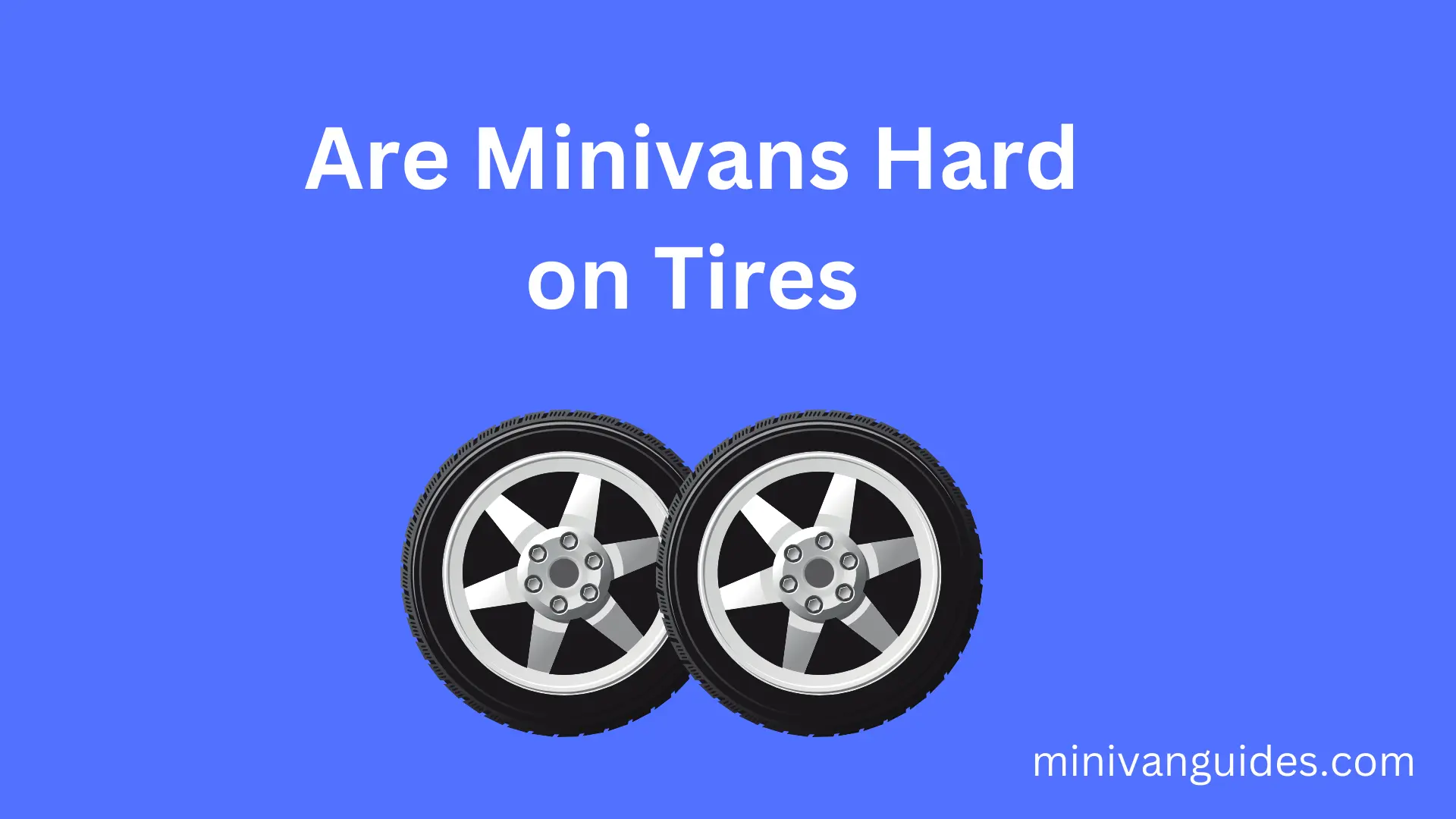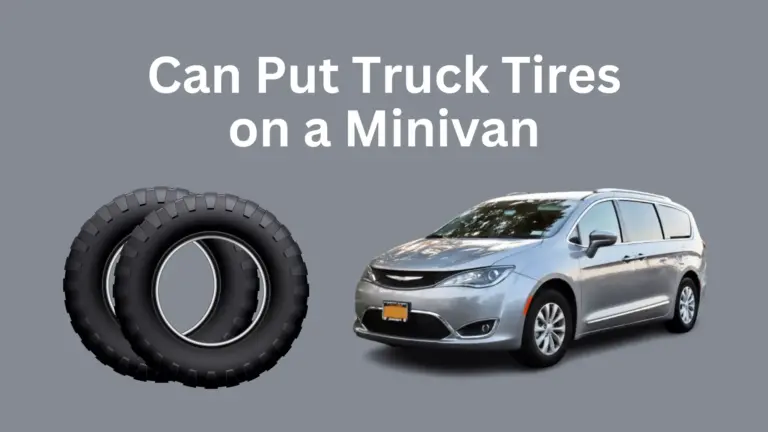Are Minivans Hard on Tires?
Minivans have been a top pick for families and individuals seeking roomy and adaptable transportation for quite some time. With their ability to comfortably seat passengers and haul cargo, minivans are indispensable for many households. However, concerns about their impact on tires often arise. Are minivans hard on tires? Let’s delve into this topic and explore ways to mitigate tire wear for minivan owners.
Understanding Minivan Tires
Before delving into the specifics of tire wear, it’s essential to grasp the types of tires commonly used in minivans. Typically, minivans come equipped with all-season tires, offering a balance of performance in various weather conditions. However, some models may have specific tire requirements based on factors like load capacity and driving terrain.
Factors affecting tire wear in minivans include weight distribution and driving conditions. Minivans are designed to carry significant loads, with ample cargo space and seating capacity. This increased weight can exert extra pressure on tires, leading to accelerated wear and tear, especially if not properly maintained.
Challenges Faced by Minivan Tires
Weight distribution plays a crucial role in determining tire longevity. Uneven weight distribution, such as overloading cargo or unevenly distributing passengers, can strain tires and contribute to premature wear. Additionally, driving conditions, such as frequent stop-and-go city driving or rough terrain, can further exacerbate tire wear in minivans.
Effects of Driving Habits
The way a minivan is driven also impacts tire wear. Aggressive driving behaviors like hard braking and sharp turns can accelerate tire wear, as can neglecting routine maintenance tasks like tire rotations and alignments. Minivan owners should adopt safe driving practices and adhere to manufacturer-recommended maintenance schedules to prolong tire life.
Choosing the Right Tires for Your Minivan
Selecting the appropriate tires for your minivan is crucial for ensuring optimal performance and longevity. Factors to consider include tire size, load rating, and tread pattern. While all-season tires are suitable for most minivan applications, those living in regions with extreme weather conditions may benefit from specialized tires designed for snow or off-road use.
Maintenance Practices
Regular tire maintenance is paramount for maximizing tire lifespan. Minivan owners should regularly check tire pressure, tread depth, and overall tire condition. Simple DIY tasks like rotating tires every 6,000 to 8,000 miles and ensuring proper wheel alignment can significantly extend tire life and improve overall safety.
Signs of Tire Wear
Recognizing the signs of tire wear is essential for timely replacement. Common indicators include uneven tread wear, visible cracks or bulges, and decreased traction. Minivan owners should routinely inspect their tires for these warning signs and promptly address any issues to prevent accidents and costly repairs.
Mitigating Tire Wear
Several strategies can help reduce tire wear in minivans. Proper tire inflation, regular rotations, and maintaining a balanced load are effective ways to minimize wear and ensure even tire tread. Additionally, scheduling routine inspections and addressing any alignment issues promptly can prevent premature tire wear and prolong tire life.
Importance of Proper Inflation
Maintaining the correct tire pressure is critical for ensuring optimal performance and safety. Underinflated tires can lead to increased rolling resistance, decreased fuel efficiency, and uneven tread wear. Minivan owners should regularly check tire pressure and adhere to the recommended inflation levels specified by the vehicle manufacturer.
Environmental Factors
Environmental factors such as climate and terrain can also impact tire wear. Extreme temperatures, prolonged exposure to sunlight, and abrasive road surfaces can accelerate tire deterioration. Minivan owners should take proactive measures to protect their tires, such as parking in shaded areas and avoiding rough terrain whenever possible.
Role of Suspension Systems
The condition of a minivan’s suspension system can influence tire wear. Worn or damaged suspension components can lead to uneven tire contact with the road surface, resulting in accelerated tread wear. Minivan owners should prioritize regular suspension inspections and address any issues promptly to preserve tire integrity.
Investing in Quality Tires
While budget-friendly tire options may seem appealing, investing in quality tires can yield long-term benefits. Premium tires often feature advanced tread compounds and construction techniques designed to enhance durability and performance. Minivan owners should weigh the upfront cost against the potential savings in terms of longevity and safety.
Expert Insights and Recommendations
Automotive professionals recommend adhering to a proactive approach to tire care. Regular inspections, proper maintenance, and investing in quality tires are key strategies for mitigating tire wear in minivans. Additionally, debunking common misconceptions about tire care can empower minivan owners to make informed decisions regarding their vehicle’s maintenance.
You should also visit: Are Minivans Hard to Drive?
Conclusion
In conclusion, while minivans are versatile and practical vehicles, they can indeed be hard on tires if not properly maintained. Factors such as weight distribution, driving habits, and environmental conditions can all contribute to accelerated tire wear. However, by adopting proactive maintenance practices, selecting the right tires, and driving responsibly, minivan owners can prolong tire life and ensure a safe and comfortable driving experience for themselves and their passengers.





